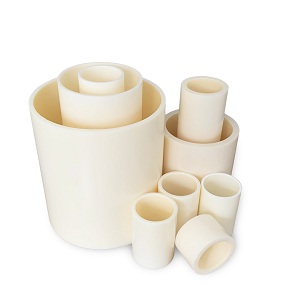ABS Plastic Pipes – Durable and Cost-Effective Piping Solution
ABS plastic pipes (Acrylonitrile Butadiene Styrene) are a lightweight, durable, and chemically resistant piping solution used in various industrial and commercial applications. Known for their strength and ease of installation, ABS pipes are ideal for conveying drainage, vent, or low-pressure fluids in both above-ground and underground systems.
✅ What Are ABS Plastic Pipes?
ABS plastic pipes are made from a thermoplastic polymer that combines acrylonitrile, butadiene, and styrene. This composition gives the pipe its excellent impact strength, flexibility, and resistance to chemicals.
These pipes are typically black or grey and are widely used in chemical processing, wastewater systems, ventilation systems, and industrial drainage.
️ Key Features of ABS Pipes
Lightweight & Easy to Install
ABS pipes are easier to cut and join compared to metal pipes, reducing labor time and installation cost.Strong Impact Resistance
Unlike brittle PVC, ABS can withstand external impacts, even at low temperatures.Chemical Resistance
Suitable for carrying a wide range of chemicals, including acids, alkalis, and organic compounds.Temperature Tolerance
Performs well in temperatures ranging from -40°C to 80°C.Low Cost
More affordable than many metal or composite piping systems, making it cost-effective for large-scale use.
⚙️ Common Applications
ABS plastic pipes are used across multiple industries and systems, such as:
Drainage and vent piping systems in buildings
Chemical waste and exhaust lines in factories
Laboratory drainage systems
️ Low-pressure compressed air systems
️ Underground cable protection ducts
ABS vs PVC Pipes: What’s the Difference?
| Feature | ABS Pipe | PVC Pipe |
|---|---|---|
| Color | Black / Grey | White / Grey |
| Flexibility | More flexible | More rigid |
| Temperature Range | -40°C to 80°C | 0°C to 60°C |
| Impact Resistance | Higher | Lower |
| Suitable for Outdoor | Yes (UV resistant) | No (needs protection) |
➡️ ABS is preferred for colder environments and industrial use, while PVC is often used in household plumbing.
Available Sizes and Fittings
ABS pipes are available in various standard diameters (e.g., 20mm to 200mm) with compatible fittings such as:
Elbows, Tees, Couplings
Reducers and End Caps
Flanges and Unions
Valve connections (e.g., ABS ball valve, check valve)
These components are typically solvent welded or mechanically joined.
Why Choose ABS Plastic Pipes for Your Project?
If you’re looking for a cost-effective, reliable, and low-maintenance solution for fluid or gas transport in chemical, industrial, or wastewater systems, ABS pipes are a smart choice. Their long lifespan, resistance to corrosion, and ease of use make them ideal for both new installations and system upgrades.
Where to Buy ABS Plastic Pipes?
ABS pipes and fittings can be sourced from industrial piping suppliers, chemical equipment distributors, or specialty plastic stores. Ensure the supplier provides certified ABS materials suitable for your application.
Conclusion
ABS plastic pipes provide a balance of performance, durability, and affordability. From chemical lines to industrial drainage, they are trusted worldwide for efficient fluid management. Whether you’re an engineer, contractor, or system designer, ABS piping offers a dependable solution for your next project.
Related products
PLASTIC PIPE
PLASTIC PIPE
PLASTIC PIPE
PLASTIC PIPE
PLASTIC PIPE
PLASTIC PIPE
PLASTIC PIPE
PLASTIC PIPE










